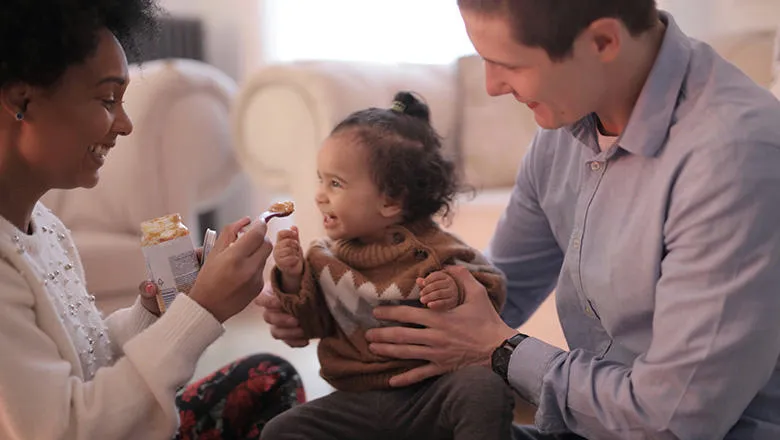“Childcare in England is broken. Broken for children, broken for parents, broken for workers and employers alike”
Bridget Phillipson MP, Shadow Secretary of State for Education
28 February 2023
Childcare in England: building the coalition to change it for good
Bridget Phillipson MP
Childcare in England is broken – for children, parents, workers and employers


Bridget Phillipson MP is the Shadow Secretary of State for Education
This essay is taken from our new edition of Essays on Equality: The politics of childcare. Read the full collection here
Childcare in England is broken. Broken for children, broken for parents, broken for workers and employers alike. Parents spend more on childcare in England than in almost any other developed country. We have a patchwork of provision, introduced at a variety of times and for a range of purposes, but taken together, it doesn’t deliver the service we need.
Why is that? Part of it is simply historic. The contours of Britain’s social security system – the National Health Service, an updated National Insurance system – were laid down in the immediate post-war era, a time when family structures and economics were very different. Although Labour governments since then have done much to augment and update the systems of benefits and services, above all through the introduction of Sure Start. Successive Conservative governments have closed over a thousand of the Sure Start centres in England that Labour bequeathed in 2010. Remaining childcare provision for pre-school years is an uneasy hybrid of provision explicitly designed to help children, and provision explicitly designed to help their parents.
Sure Start’s failure to survive a change of government contrasts powerfully with the status of the National Health Service in UK politics as an enduring and politically untouchable service, once described dismissively by a Conservative Chancellor as “the closest thing the English people have to a religion”. That contrast speaks to one of the hardest challenges facing us: how to make sure that “changing childcare for good” really means both better outcomes for families and a transformation that endures.
But it is by no means the only difficult challenge. Even the words we used to describe the problem are hotly contested. I have lost count of the number of occasions on which I have started to talk, in the language parents use, about how we improve things, and I have been taken to task for failing to be clear about whether I want to improve outcomes for parents or for children, or for using the term childcare when I should be talking about early years education.
A tendency for those closest to any issue to have strong views on how best to talk about their work is hardly unique to education, but too often the wider politics gets obscured. The challenge for politicians is not simply to determine policy and priorities, but to speak to electors about them, and to build coalitions to back them: to bring people together so as to deliver change that commands support. There are many, many improvements to the current system that would be good news for children and good news for parents alike. Our politics needs to make sure any fork in the road is in the distance, not the foreground.
What’s more, childcare as a challenge for families – even admitting the imperfection of the term – is not merely a matter of provision in the early years. It isn’t just our social security system that was built in an earlier age, but our school year – organised around the labour needs of agriculture – and our school day, which is quite distinct from the working day of parents’ lives.
The broader conception of childcare, as an issue that faces parents of children from the end of parental leave through till the end of primary school, roughly to the age of 11, is also crucial to the electoral politics of childcare. For many families, the costs of childcare – understood as including breakfast clubs for children at primary school, as well as after school activities – take up considerably more of a family budget than food or housing costs. That broader conception fits well with what Us Secretary of the Treasury Janet Yellen has called “modern supply side economics”: better childcare and better education for children throughout their early years is good for parents, employers, and skills availability in the short term, and good for education and skills into the much longer term.
In achieving the change we need, the timing of the electoral cycle doesn’t always help. If you allow for two to three years for a system to be rolled out in government – if you focus purely at the pre-school space – future beneficiaries haven’t seen the need yet, and as for those electors who would benefit right now, they and their children will be past that stage by the time the policy is in force.
“For many families, the costs of childcare... take up considerably more of a family budget than food or housing costs”
Bridget Phillipson MP, Shadow Secretary of State for Education
That’s why it’s crucial we think about the whole of the time in a child’s early life, from the end of parental leave – which Labour plans to reform – through to the end of primary school; and in the life of the family, too – through every working day, and through every school holiday. More than that, this is also the way to build and brand the coalition for change. That’s why when I set out the first step towards the modern childcare system we will build, at Labour’s conference in 2022, I didn’t start with the early years: I started with services for school age children. They and their parents need to be beneficiaries too, of a system to be understood as a service for every child and every family, for the decade in children’s lives where education makes the most difference.
And building a wider coalition to include those who deliver the services as well as the families who use them, must also be part of how we ensure a better system endures. One of the great ironies of the history of our National Health Service is that the British Medical Association did its level best to destroy the NHS before it came into existence, and yet within a generation, the BMA went on to become one of its most determined defenders at a time of sustained attack from a Conservative government. The lesson to learn is that the NHS as a lasting political fact has owed much to its breadth, touching so many lives in so many ways; its status as a service there not just for some but for all; and to the institutions which have grown around it and accommodated to its success, from the trades unions to the medical schools and the Royal Colleges, which do not flinch from its defence.
Around the world, the time has come for change on childcare. Australian Labor put childcare at the heart of their federal election campaign messaging in 2022. In Canada the government is pressing ahead with a new national cap on costs. Even in the United States, President Biden’s initial package to Congress would have transformed childcare in America for every working family.
I am determined that the ambition Labour had in the 1940s to build a better society, fit for our values and the time, is ambition we match today. Our children are born into a country with a proud history, but they deserve a bright future too.
